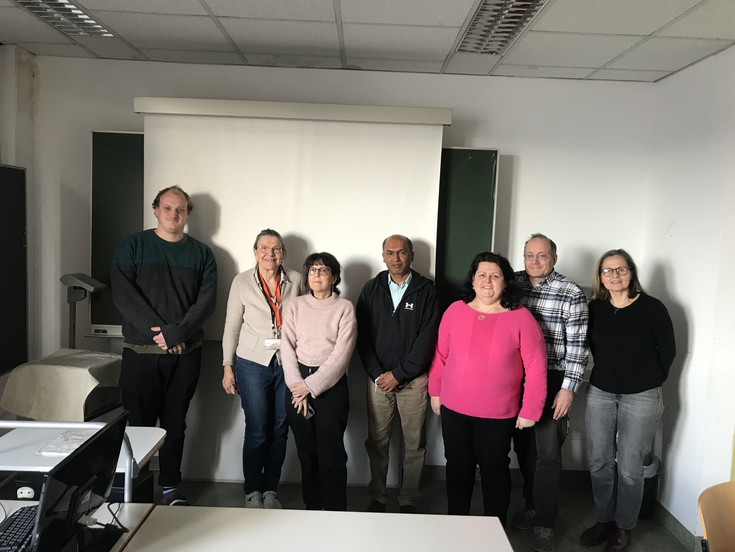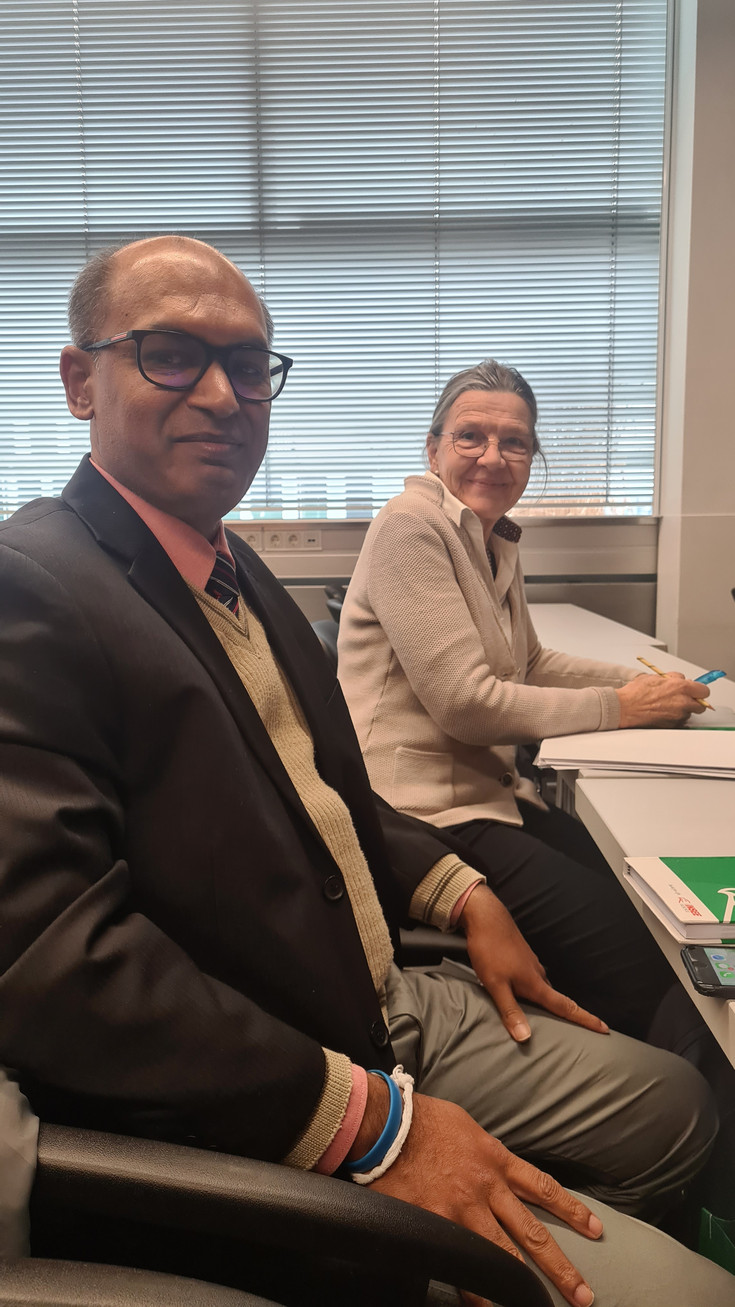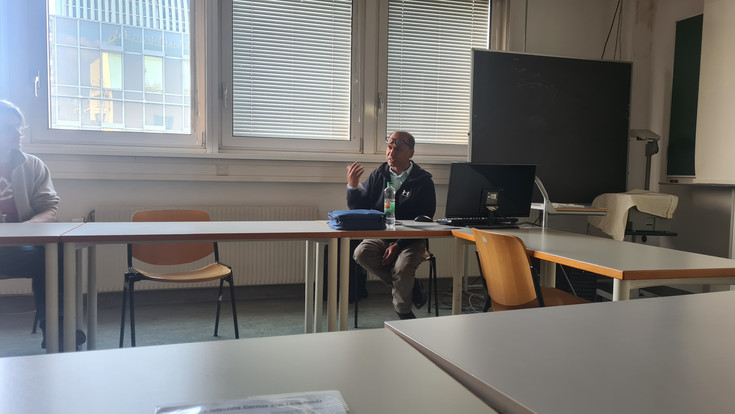Visit Dr. Ranatunga
How could the Plant Biotechnology Unit (PBU) contribute to Tea Breeding in Sri Lanka?



Tea is the second most consumed beverage worldwide after water. This is why PBU received with great interest the visit of Dr. Mahasen Rantunga, currently Deputy Director of Research at the Tea Institute (TRI) of Sri Lanka. TRI was founded in 1925 by RG Coombe in Kandy, and in December 1929, transferred to its present location, at St. Coombs Estate in Talawakelle.
The history of Ceylon tea dates back to the 19th century when the British established tea plantations. Before this, coffee was the main cash crop in Sri Lanka. However, a fungus called Hemileia vastatrix, also known as coffee rust, wiped out most of the coffee crops, leaving many farmers without a livelihood. In 1867, James Taylor, a Scottish planter, began experimenting with tea cultivation, and by 1872, he had established a fully operational tea factory on the Loolecondera Estate.
In the frame of the Technical Cooperation Scientific Visit SV-SRL5050-2206572 Dr. Ranatunga spent a week in January 2024 at the PBU, BOKU. The discussions centered around PBU´s activities, which were presented by Prof. Margit Laimer and Dr. Eduviges Borroto Fernandez and their students.
Since the sustainability and profitability of the tea industry depend primarily on the availability of desired planting material, major interest was expressed for the techniques developed at PBU for in vitro conservation and utilization of genetic diversity. As desirable attributes resistance to biotic and abiotic stresses were identified. This is where PBU`s experience with transformation of woody species, biotechnological methods for mutation breeding and resistance breeding (in coffee and olive) were considered important assets.
For the innovation aspects TRI s efforts to breed, select and release new improved cultivars, that would be better suited to future demands, the integration of molecular markers, marker assisted breeding and the application of New Breeding Techniques like Gene editing were discussed. The understanding of PBU on the role of allergens in fruits was considered relevant for the selection in tea breeding.
Dr. Ranatunga presented an interesting overview on TRI`s activities related to "Tea breeding research in Sri Lanka". It was a pleasure to welcome guests from the Institute of Horticulture attending and discussing this presentation. Future collaboration opportunities were discussed and will be submitted for funding at international funding institutions. We are also looking forward to the celebrations of TRI´s 100th anniversary in 2025.
